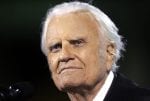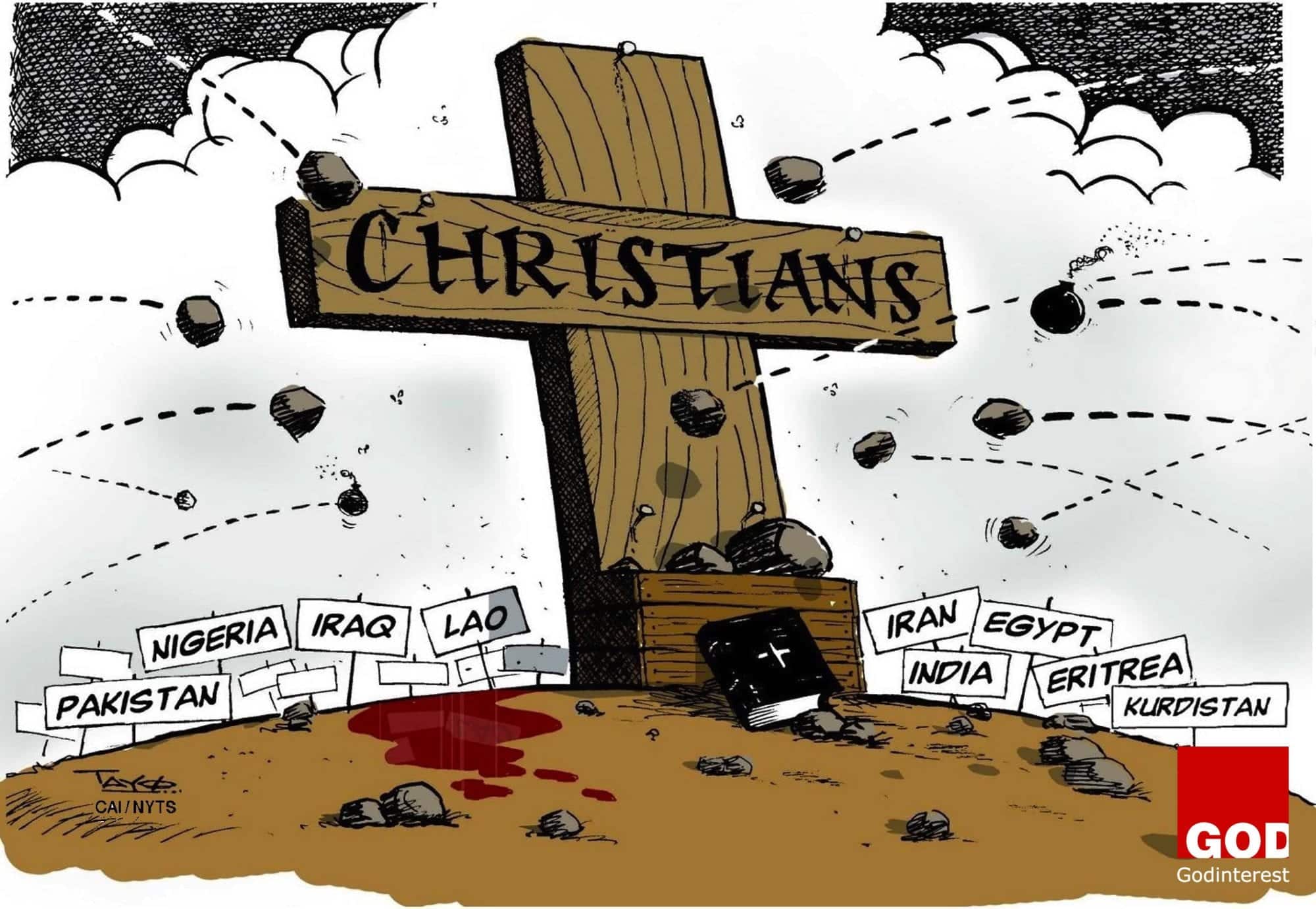Whether you wanted to or not, you have picked a side. There is no such thing as sitting on the fence. You are a slave to whatever side you have chosen – make no mistake about that. Your choice becomes a life sentence – you are going to adhere to the ‘rules’ of that side. Ask yourself this: does your choice lead to life or death?
Life Sentence One (The Broad Path)
- But even if our gospel is veiled, it is veiled to those who are perishing, whose minds the god of this age has blinded, who do not believe, lest the light of the gospel of the glory of Christ, who is the image of GOD, would shine on them (2 Cor 4:3-4).
I am enjoying my life doing what I want to do and how I want to do it. I believe that I am a kind and generous person- I regularly donate to charities, help out the poor and needy etc. I’m not a criminal of any kind, well maybe I once stole something, but nothing hectic. I’m nothing like the murderers who take the lives of innocent people, I have not raped anyone or done any other major crime. I am good to my family, I earn an honest living and when I can, I take vacations. I am essentially a good person- an upstanding member of the community. If what I choose to do does not hurt anyone else, why should it be wrong? I do not need organized religion to tell me right from wrong! I don’t need some non-existent GOD to tell me what to do! As far as I’m concerned, these religious people are the problem to society- especially these stupid and judgemental Christians. Well, maybe some are alright- they do not try to evangelize me or something. In fact, I don’t even believe that some of them are so-called Christians- they do all the things that the rest of us ‘heathens’ do! Isn’t their GOD against sex out of marriage, getting drunk, going to the clubs and that sort of thing? Anyway, I’ve seen plenty of that type- they are not going to recruit anybody with that sort of double standard. But really now, I don’t want to hear about some fictional character called Jesus! I mean, what proof is there that He actually exists? Just a bunch of lies if you ask me. If He really existed, why would this so-called Almighty GOD send His son to die such a horrible and demeaning death? What kind of loving GOD does that?! No, I do not want any part of a religion that allows innocent people to be killed and even justifies itself! If I believed in a higher power, then I would rather be Buddhist or something- they are far more honest, non-judgemental, non-violent and more loving and generous than this bunch of hypocrites! You know what though? This is the only life that we are going to get, and I’m going to make the best of it. There is no life after death.
All Scripture is given by inspiration of GOD and is profitable for doctrine, for reproof, for correction, for instruction in righteousness, that the man of GOD may be complete, thoroughly equipped for every good work (2 Tim 3:16-17).
Listen here, you don’t need to tell me anything about GOD! I believe that there is a GOD and I will worship Him how I want to worship Him. Why do I need to read some book about events that probably didn’t even happen? Those are all just stories that teach us lessons. I mean, come on! Just think: a man’s daughters slept with him just to fall pregnant! What kind of sick thing is that? That couldn’t have happened- it’s just a story. How are you going to prove that it happened? You need to take into account that the Bible has been translated several times already! Who knows what is true and what isn’t. You can’t base your whole life on a book that probably isn’t even true. I do pray you know. I pray to GOD every day and it’s a personal relationship- I don’t want to talk about my faith and beliefs with you. I’m going to heaven either way- I’m a good person.
“Not everyone who says to Me, ‘LORD, LORD,’ shall enter the kingdom of heaven, but he who does the will of my Father in heaven (Matt 7:21)/ “But in that day and hour no one knows, not even the angels of heaven, but My Father only.” (Matt 24:36).
I’m not stupid you know. I do believe that there is one GOD and that He sent His Son to die for my sins on the cross. But right now, I don’t want to change my life to become a Believer. Look, I’m going to do it soon- just don’t rush me okay? It’s not like He is coming now! For centuries people have been telling us to get ready because Jesus is on His way, but in all that time He hasn’t appeared yet. Some people have even given dates of His arrival for goodness sake! But did He come on those dates? Nope! I just think that some Christians are just trying to scare us into accepting something that we are not ready for. So just chill please, I’ll come to Him in my own time. In all truth, I’m already a Christian because I believe, I’m just not fanatical like some of them- they take it a bit too far you know, what with talking about demons and spiritual realms and all that. Where do they get stuff like that? Sounds pretty mental and far-fetched to me. Nah man, I’ll change my ways in my own time. GOD loves me- He will forgive me anyway. I said I believe right? So there you go.
Jesus said to him, “I am the Way, the Truth, and the Life. No one comes to the Father except through Me.” (John 14:6)/ “You shall have no other gods before Me.” (Exodus 20:3).
I go to church every Sunday you know. I do everything that I’m supposed to do. I keep myself away from the eight deadly sins like any good person and I say my prayers every night. Because of this, I know that I’m better than the others. At least I’m going to heaven. Well okay, I let Bryan go a little bit further than I intended to, but I didn’t go all the way! I’ll just go to confessions and do however many Hail Mary’s I need to do. I’m sure that the Blessed Virgin will forgive me- I’m just human, I make mistakes like any other person. I’ve got a small statue of her at home, I’ll just pray to her and ask her to speak on my behalf to Jesus so that He can help me from this temptation. Bryan says that we’ll get married soon so it’s okay, but it still seems like a sin to me. You know, I sometimes wonder to myself about these other so-called Christians; don’t they understand that the Pope is GOD’S elected representative of the church after Saint Peter? He is a holy man of GOD and deserves their respect. Whatever he says comes straight from GOD. It’s blasphemy for these Christians to think that they know better than him just because they read the Bible.
Do not be carried about with various and strange doctrines (Heb 13:9)/ Now the Spirit expressly says that in latter times some will depart from the faith, giving heed to deceiving spirits and doctrines of demons,” (1 Tim 4:1).
It doesn’t matter what religion you follow because they all lead to GOD. I like immersing myself in different cultures and their religions. They are quite similar you know. They all have that message of doing good to others, living an honest life- stuff like that. I regularly go into different temples dedicated to all these different gods. I will admit that some of these gods are freaky, what with all this sacrificing stuff, but I guess that it’s just one side of GOD. I like knowing about my angels, how I can pray to them, how they help me… they are sent by GOD- you should know that. Meditation is such a huge stress reliever. I’m not at that point where I can access my third eye yet, but my guru says that I’m close. I need to learn how to make my mind blank- it’s the only way for the spirits to contact me. I’m excited to get my own spiritual guide! I’m quite a spiritual person, so getting my own spiritual guide will just take my spirituality to the next level. I think that I should light a few candles tonight before I meditate, maybe even get a few more crystals and concentrate on my chakras. I wonder what it would be like to have some power? I’m sure GOD wouldn’t mind. Those Wiccan witches seem good and peaceful- like a mother earth type of people. I won’t go to the dark side though, with all that sacrificing of animals and stuff. I’m sure that if I just slit my wrist though, my blood should suffice, then I won’t have to kill another living thing. I feel so odd sometimes though as
Life Or Death – It’s Your Choiceif something else within is trying to control me.
…being filled with all unrighteousness, sexual immorality, wickedness, covetousness, maliciousness; full of envy, murder, strife, deceit, evil-mindedness;…who, knowing the righteous judgments of GOD, that those who practice such things are deserving of death,… (Rom 1:29 & 32).
I’m going to do what I want to do, and you cannot judge me because only GOD can. If I want to take drugs, steal or drink heavily, who are you to judge me? Are you GOD? Man, sometimes I feel like I just can’t get out of this hell-hole. If GOD loves me so much, why doesn’t He help me? But anyway, you have got to do what you have got to do- nobody is going to help you in this life. Do you need money? You go and get it. You might need to steal it or kill others for it, but you can’t survive without it. Besides, I like the power that comes with doing whatever I feel like doing. And those whores? They just ask for it man. I give it to them good too. They might kick and scream, but they like it- it just shows that I’m doing a good job. Sometimes you need to silence them up forever, it’s nothing personal. I can’t handle snitches! That one dude tried to do me in, so I got rid of him- it’s only justice. You need to get your own justice in this world- GOD’s not going to do it for you. I have respect for GOD- I don’t want to hear you say anything against Him, you hear? One day He is going to judge me, and I’ll probably end up in hell man. But that’s life you know. Maybe there isn’t even a heaven or hell- who knows? Sometimes I feel like I got the devil living right inside of me- I get so angry and just lash out. But you know, no man can judge me, only GOD can. I’m going to live my life like I want to.
Having disarmed principalities and powers, He made a public spectacle of them, triumphing over them in it (Col 2:15)/ For the message of the cross is foolishness to those who are perishing,… (1 Cor 1:18)/ And no wonder! For Satan himself transforms himself into an angel of light (2 Cor 11:14).
Jesus was a fool. There was no victory there. Satan got the victory- he triumphed the day that Jesus died on that cross. He is more powerful than anything! What is this GOD that you speak of? Who is He? He wasn’t even powerful enough to save His Son from the cross! These Christians are all fools. Satan, he is our salvation and our light. Lucifer is far more intelligent and more powerful than any simpering and foolish GOD. It is fitting that we sacrifice our children to Lucifer. In return, he promises to give us great riches and power. The demons dwelling within me do what I want them to do. Perhaps there are times when they overpower me and use my body against my will, but I’m still more powerful than any stupid Christian will ever be. I’m not always comfortable with kidnapping people to sacrifice them, but it has to be done. Our great lord Lucifer needs these sacrifices- it shows our loyalty to him. I’ve gotten used to the taste of blood mixed in my drink- sometimes the priestess will even grind up some flesh and give it to people to eat it. If you’re willing to do this, you get even stronger demons in you. I enjoy the orgies, but the demons mingling among us can be brutal. There are so many lies that we get other people to believe- they do not even realize the destruction that we do. Just the other week I astral projected with my fellow brothers and sisters and we went to some church. A few of our people managed to infiltrate the church some months back because we had ground to. It’s amazing how these Christians are not aware of some pagan practices that they allow in church! Well, they infiltrated the church and began to carry out the plan to destroy that church. There is so much strife and division there! They have no power against us. Funnily enough, we couldn’t get through this other church though. They literally had these massive angels standing right around them. When the people started to shout out the name of Jesus and worship GOD, the demons ran away. We couldn’t get through because of the angels, so we turned back. If Lucifer was so powerful, why did the demons run away at the mention of Jesus?
These are just a few of the broad path life sentences, there are many others. With the broad path, you probably believe that you have it chosen for yourself, that nobody coerced you or influenced you, but that’s not true. You make choices based on what you see and learn and are readily deceived: For when they speak great swelling words of emptiness, they allure through the lusts of the flesh, through lewdness, the ones who have actually escaped from those who live in error. While they promise them liberty, they themselves are slaves of corruption; for by whom a person is overcome, by him also he is brought into bondage” (1 John 2:18-19). Let no one deceive himself. If anyone among you seems to be wise in this age, let him become a fool that he may become wise. For the wisdom of this world is foolishness with GOD (1 Cor 3:18-19).
Life Sentence Two (The Narrow Path)
According to Romans 10:9-10, I am saved because I have confessed with my mouth the LORD Jesus and I believe in my heart that GOD has raised Him from the dead. I have been forgiven of all my sins and washed in the Blood of Jesus (Eph 1:7). I believe that he who believes and is baptized will be saved, but he who does not believe will be condemned (Mark 16:16). Because I confess Jesus before men, He will also confess me before our Father in Heaven (Matt 10:32). For I know that if I deny Him, He will also deny me (Matt 10:33). I understand, that because I am of GOD, there will be persecutions- “Behold, I send you out as sheep in the midst of wolves. Therefore be wise as serpents and harmless as doves” (Matt 10:16). However, I will not fear those who can kill my physical body but cannot kill my soul. I will fear GOD who is able to destroy both soul and body in hell (Matt 10:28). I am complete in Him Who is the Head of all principality and power (Col 2:10). I am free from the law of sin and death (Romans 8:2). I am submitted to GOD, and the devil flees from me because I resist him in the Name of Jesus (James 4:7). GOD has not given me a spirit of fear, but of power, love and a disciplined mind (2 Tim 1:7). It is no longer I who live, but it is Christ Who lives in me (Gal 2:20). I know that I am the temple of the Holy Spirit; I am not my own (1 Cor 6:19). I can do all things through Christ (Phil 4:13). I am more than a conqueror through Him Who loves me (Romans 8:37). I understand that faith comes by hearing, and hearing by the Word of GOD (Romans 10:17).
There are so many other Scriptures to use here. There is so much more to expect and enjoy when you follow the narrow path. Yes, it is difficult and there will be suffering- if Jesus endured it, why can’t you? Our suffering is but for a little while on earth, after this is eternity with Jesus. We could never imagine what GOD has in store for us! Does that mean that we can never be happy here on earth? Of course not! We can enjoy our everyday lives because of the promises of GOD and His peace in our lives. His mercy is so great and His grace abounds to us. No matter what we may go through, He is right there. Listen to what Jesus says: “Come to Me, all you who labor and are heavy laden, and I will give you rest. Take my yoke upon you and learn from Me, for I am gentle and lowly in heart, and you will find rest for your souls. For My yoke is easy and My burden is light.” (Matt 11:28-30). Isn’t that beautiful? What a wonderful promise!
Ending Thoughts: My brethren, count it all joy when you fall into various trials, knowing that the testing of your faith produces patience. But let patience have its perfect work, that you may be perfect and complete, lacking nothing.” (Jam 1:2-3). For he who is called in the LORD while a slave is the LORD’S freedman. Likewise, he who is called while free is Christ’s slave (1 Cor 7:22).
































